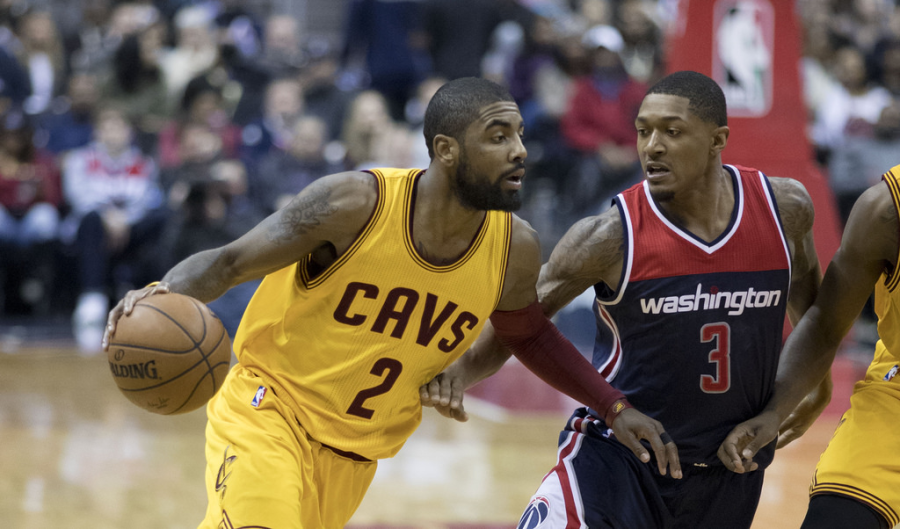As it has been quite a while since the news of the trade dropped, I believe it is finally time to ask ourselves a truly objective question. Was the Kyrie Irving trade more beneficial to the Cavaliers or to the Celtics? In other words, who really won the trade? Many of the more shallow critics of the sport (Stephen A. Smith) say that the Celtics were dumb and lost wholeheartedly. While this is true in simple face value, let’s actually use our brains for once to judge this intriguing trade.
The initial trade was Irving for Isaiah Thomas, Jae Crowder, the 2018 Brooklyn Nets’ pick, and a 2020 second-rounder who was thrown in last minute. Like I said above, face value has the Cavaliers winning the trade by a surprising long shot. Irving averaged a nice 25.2 points per game while contributing 5.8 assists. The issue? Thomas averaged a better 28.9 points per game and barely passed Irving in assists with 5.9.
Why would the Celtics trade a player who averaged better stats for someone who couldn’t lead a team to the playoffs for three years until Lebron James came back? What’s more, the Celtics gave up Crowder too, a man known for being the quintessential 3 and D player. Many have him pegged as the next big thing in the NBA simply because of his steady improvements while maintaining his lockdown defense. So the Celtics must be absolutely insane, no? The answer really comes down to Danny Ainge’s understanding of contracts and long-term vision.
In 2015, Irving signed a five-year contract which made him (at the time) a gaudy $94,343,126. He is set to make a crisp $18.8 million next season, which is a huge number compared to Thomas’s measly $6.23 million. The definitive difference is not actually the priceline, but the fact that Irving has two years left in his contract while Thomas only has one year left. The bigger difference, though, is that Irving will be 26 years old, going on 27, when his contract is over; Thomas will be 29. Irving still has quite a long time to reach his enormous peak, while Thomas will already be on the latter end of his own prime by the time his contract runs its course. Thomas may be an amazing player, but his age and pace matches a team who is focused on winning now rather than a Celtics team that is still waiting for its best players to reach their primes.
But fiscal value and age can’t possibly the defining factor, can it? I mean a 29-year-old Thomas doesn’t even sound too bad. The true and greatest reason why the Celtics won this trade by a landslide is the flimsiness of the Cleveland Cavaliers’ organization itself. If the organization were assured to have James in the next few years, the Celtics would have shot themselves in the foot by giving them their best player. But James isn’t a sure thing in Cleveland and in return, neither is Thomas. If James were to leave Cleveland for greener pastures, which, from reports, is a huge possibility, why would Thomas resign next year?
With all due respect, Cleveland itself doesn’t have much to offer with its toxic fanbase and lackluster shine. There is no motivation for Thomas to resign if James doesn’t, and that is the reason the Celtics pulled the trade. By taking away the East’s best team’s best closer, the Celtics are now settling in to win the East next year after James leaves.
It’s ingenious, really. The Celtics knew that as of now, Thomas and Crowder are supreme bargains. The Celtics had the foresight, however, to predict the other side of the equation. Thomas and Crowder would want the large amounts of money given to stars after their contracts were up. It would have been money that the Celtics didn’t want to spend on a defensively deficient point guard and a small forward who seems to lack a take-over mentality. We won the trade by a definitive margin, and by this time next year, Ainge will be touted as the mercurial genius he has always been.





















































